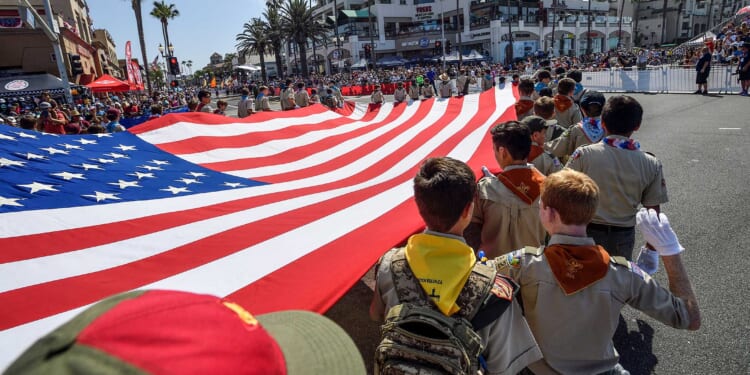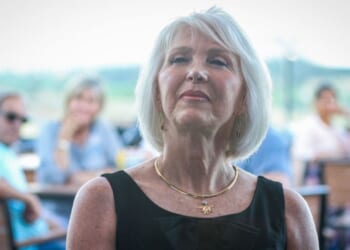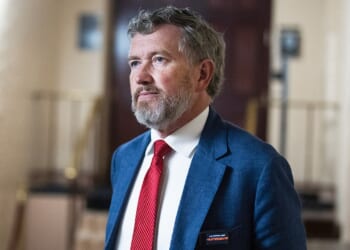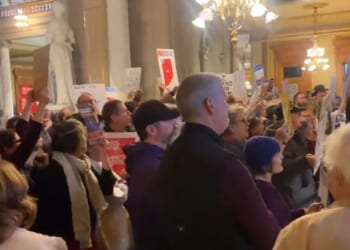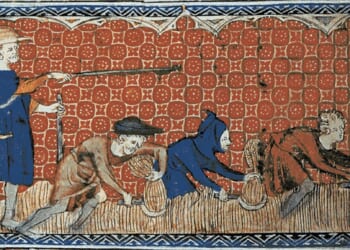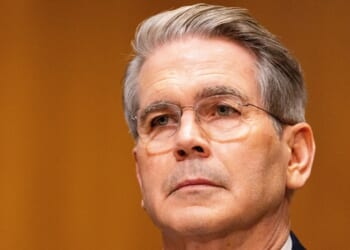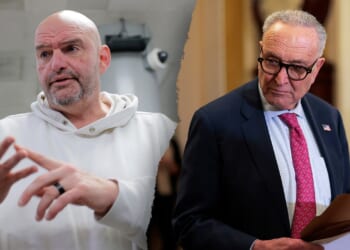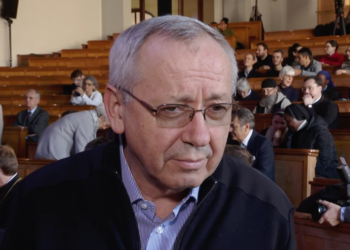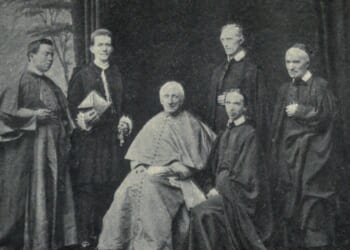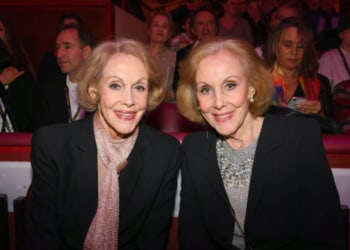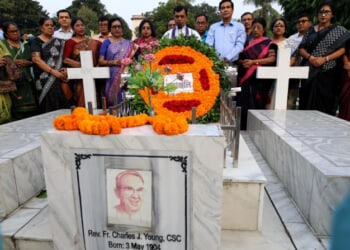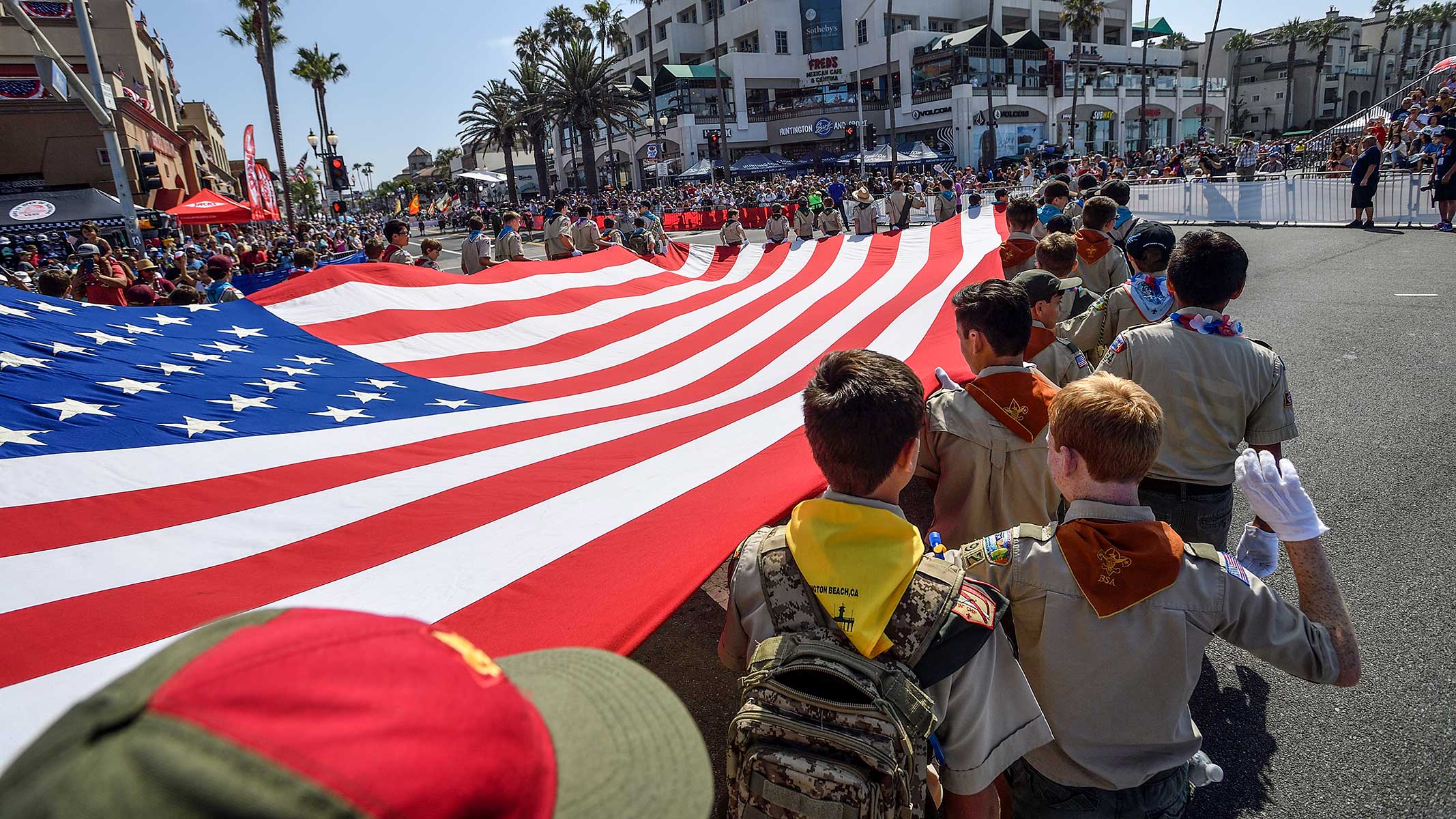
What are the consequences of a culture that undermines masculinity? Heather Mac Donald, Daniel Di Martino, and Rafael Mangual examine the complex forces fueling rising tensions in America. They discuss the recent attack on an ICE facility in Dallas, the cultural crisis of masculinity, the importance of fatherhood, and the need for positive male role models. Drawing on the legacy of figures like Charlie Kirk, they reflect on why it’s crucial to revive values like courage, heroism, and personal responsibility.
Audio Transcript
Rafael Mangual: Hello and welcome to another episode of the City Journal Podcast. My name is Rafael Mangual. I’ll be your humble host for the day. And I am so glad to be joined by two of my favorite Manhattan Institute colleagues, Daniel Di Martino and the great Heather Mac Donald. Welcome to you both.
I hate to start the show off on such a dark topic, but earlier today, and for those of you who are watching and listening on the day that this comes out, we are recording on Wednesday, September 24th, and this morning news broke of yet another apparent episode of political violence, this time in North Texas where a now deceased shooter is alleged to have fired several rounds at a Dallas area immigration and customs enforcement facility, killing at least one and wounding two others. Now, early reports suggest that the shooter wrote some anti-ICE messages on some of the bullets that were found near his position, which suggests a political motive.
So Daniel, you’ve been writing and thinking about immigration issues for us so brilliantly, but it just seems like level-headed analysis is giving way to increasingly vitriolic rhetoric. I mean, I wonder if you could just start us off with some reactions to this story and any thoughts you have on how to sort of temper the tone of our immigration debate.
Daniel Di Martino: Well, it’s just really heartbreaking because it just seems that a much larger number of Americans are willing to violently act under political disagreement. Now we have a shooter that is allegedly an anti-ICE person that wrote in some bullets literally the words “anti-ICE,” but then ended up killing two migrants and wounding another. The last report I saw is that two of them had died. So he didn’t even shoot at the ICE agents themselves. So there is something really strange happening that I don’t quite understand with mental health in this country. I do understand that a lot of people are blaming the rhetoric. And I do agree that the rhetoric is very negative right now and on both sides, I’ll say. But it does seem that the left is much more willing to act on that rhetoric violently than people on the right so far at least.
Rafael Mangual: Yeah, I mean, Heather, I’d love to get your thoughts on this because it just it really does seem like we have ratcheted up the tone. mean, I can’t think of almost any political issue now in which the left isn’t calling the other side a Nazi or something akin to a Nazi. And of course, there’s really only one thing that should be done with Nazis. If you’re talking about somebody who truly is that evil, it just seems like there’s this kind of never-ending series of episodes. I mean, we’re all still reeling from the death of Charlie Kirk. You had the shooting at the ABC station after Jimmy Kimmel was fired. I mean, what’s your sense of the role of rhetoric in this?
Heather Mac Donald: Well, I absolutely honor both of your instincts to say this is coming from both sides. And I think we have to realize that the right-wing rhetoric sounds as ludicrous and lunatic to the left as theirs does to us. But I’m going to push back a little bit on any idea that this is truly symmetrical. I think that the left is animated by this idea that it is fighting hate. I think hate is probably the most powerful rhetorical tool in the arsenal of left-wing power abuses, whether just simply abusing the power of censorship, of exclusion, of stigmatization, of enforcing orthodoxy, or sadly, it looks like increasingly using actual violence. This phony equivalence that somehow if you speak in general terms about an issue you are engaged in hate speech and you’re a hater and you are putting individuals that are marginalized at risk and we’ve seen to learn that now canceling those haters and hate speech, which is something that Tyler Robinson, the assassin of Charlie Kirk, invoked. He said Charlie Kirk is a hater. There’s too much hate and some hate can’t be negotiated with. That is a concept that comes out of the university and it is spread very widely. And there are definitely right-wing thugs and kooks, but I don’t think that there’s any comparable tally of violence.
I would say too, I agree with Daniel that there is mental health problems in this country, that people are not being socialized. They’re not being given enough stable supports in their families, in their communities. On the other hand, assuming for now, and it could be, anyone could imagine somebody who is in fact pro-ICE writing “anti-ICE” on the bullets to try to couch his actual motives, and we don’t know whether his targets were in fact the illegal aliens or whether his intention was to in fact shoot ICE agents. But the degree of violence directed against ICE, both rhetorical and physical, since the summer has been simply extraordinary. I’m here in California. I read the Los Angeles Times. Every day on the front page, there’s five articles completely delegitimating anything ICE could possibly do. The assumption is this requires some sort of revolution. The ICE, anti-ICE riots in Los Angeles did not get enough attention. Donald Trump was absolutely right to send in the National Guard. He did so because the ICE agents were being so violently attacked. A week after he sent in the National Guard, and all the guard did, you know, we were supposed to think of this as this authoritarian, posse comitatus takeover and they’re enforcing the law and their martial law. They simply stood around. They used as you know, this phrase, Rafael, “command presence” by simply being there and deterring crime. They used command presence around federal facilities and officers. That’s it.
A week after they were already there, I spoke to a LAPD Sergeant in one of the very high crime areas of Los Angeles who described incidents where there had been in downtown the day before, an anti-ICE crowd broke into an ICE detention center, used improvised bombs with firecrackers, nails, and broken glass to try and blind and maim the ICE officers. The day before there was a kidnapping, a successful kidnapping, taking over an ICE vehicle where a crowd stormed the vehicle. They dragged the detainee out and escaped with him. the LAPD didn’t even put out a tactical alert to try and stop this vastly unlawful kidnapping because that would be cooperating with ICE.
I don’t attribute, my instinct is not to go to mental health, my instinct is to go to a rhetoric that is extremely pervasive on both the left and in the mainstream elite institutions, which is to dehumanize and completely discredit the idea of any kind of immigration enforcement.
Rafael Mangual: Now I think you’re exactly right about that, Heather. mean, you know, just thinking about last weekend, you had the ICE facility just outside of Chicago, Illinois, under seemingly constant attack with people trying to block every single vehicle going in and out of the facility, fighting with ICE agents, and then having those videos sort of repurposed and sent out into the ether with the message that we should all disbelieve our lying eyes and say that this is evidence of the Gestapo using its jackbooted feet to stomp on the necks of good red-blooded Americans just simply exercising their right to protest, as if what they weren’t doing was physically interfering with and obstructing actual law enforcement.
Daniel Di Martino: Ralph, they’re manufacturing the incidents to show themselves being arrested by ICE in the same way that Brad Lander has done it in New York City. I think this is the second time he’s gotten arrested by ICE on purpose. I mean, that’s their goal. And people forget ICE is actually perhaps the most effective law enforcement agency in the US because it removes criminals away from the country as soon as they offend when they are non-citizens. Every single year, over 100,000 convicted criminals in this country are removed from society by ICE. They prevent more crime than even the local and state law enforcement by removing these people from the country.
Heather Mac Donald: And I would add, I mean, Ralph, you’ve written so well about the progressive prosecutor movement and the absolute mayhem that it has unleashed on society. And one of the ubiquitous decriminalization platforms, whether it’s George Gascon in Los Angeles, now thankfully voted out of office, or Alvin Bragg, who’s facing a reelection this November, and I fear he’ll get on the coattails at least of Mamdani, but both of them and others as well have said, well, one of the crimes we’re not going to prosecute is resisting arrest, which is absolute the end of civilization. If the law itself says we don’t care about defiance of the law, then there’s no way to get law and order back. And so this, this idea that it’s open season on ICE agents and that you can attack them and be regarded as a hero and the people in power are going to complain about National Guard being there, that’s the problem. That’s part of a much broader delegitimation of law enforcement that has been going on for decades now but is getting worse.
Rafael Mangual: I think that’s right. I think that’s right. I wanted to move us on to a different topic here. mean, this most recent shooting, of course, comes as the country is still reeling from the loss of conservative activist and Turning Point USA CEO Charlie Kirk, whose memorial service in Arizona last weekend was attended by somewhere in the range of 100,000 people. I mean they actually filled out an NFL stadium and had spillover locations for other people to watch the proceedings and the memorial service was viewed by millions more online and it was live streamed and so many larger than life political figures from the president on down spoke and it really just got me thinking that Charlie Kirk’s untimely death really does leave a void, not just for his family, obviously, and for his colleagues and his friends, but for the hundreds of thousands of young men who followed him and looked up to him, not only for political guidance, but also just for guidance on what it means to be a good man.
So, you know, and then I guess a crude attempt to find something positive to say at a time in which, you know, we’re seeing so much of this political violence. I wanted to just kind of have a conversation about the positive image that he provided. I mean, there, of course, have been several ongoing debates about what it means to be a proper and moral man in America. You know, Charlie Kirk was a participant in that discussion. And at one extreme, right, you have people who can’t even agree on what a man is. And at the other extreme, you have these sort of walking, talking caricatures of, you know, tacky machismo. But I wanted to just chat with the two of you a little bit about what we hope to see in masculine models for young men, particularly on the right, as the right seeks to fill the void that was left behind by Charlie. And Heather, I want to start with you because you’ve just written so beautifully about many of the issues that often come up in these discussions. The importance of fathers, the misguided nature of the toxic masculinity critique, both things that Charlie Kirk often spoke about himself. And what are some of the qualities you think that young men should be able, what are some of the things that you’re hoping we see in whoever it is that steps into that place?
Heather Mac Donald: Well, I think that what we’re most lacking is the values that gave us civilization, which are disproportionately located in males of the species. It’s not to say that there’s not females who have the same traits of exploration, of courage, of an absolute passion to expand competitiveness, self-reliance, the desire, frankly, to conquer, whether it’s intellectually or to conquer land, to conquer ignorance, and sometimes indeed, and this is true of every single civilization, every single culture, to conquer neighboring peoples. But I think the core essence for a more domestic view for males is a sense of honor, a sense of taking responsibility for others, a sense of virtue, self-effacement, courage, a willingness to provide, and in some senses, the opposite of Donald Trump. I’ve been thrilled by his presidency, but I’ve often felt that he is not a good role model for males because he is so vindictive. He has no trace of magnanimity. We saw an interesting contrast with that at the memorial service between, do you seek vengeance? Do you fill yourself with hate? And which is Trump’s view versus Erika. As far as the role model issue, Ralph, that’s a tough one for me because you’re right, it’s a hole. Everybody’s putting their hopes in Erika Kirk to go forward. And she certainly showed herself to the world as extraordinarily self-possessed, eloquent, visionary person, but she is a female. And I usually completely reject the idea of role models, because it’s usually the female that has to have female role models in order to even think about being a scientist. And my view is that is so limiting, it is so self-involved, it is so narcissistic. How’s about you choose as a role model Albert Einstein? I don’t feel like I need a female to feel like I can only go forward. It becomes a circular process. If I can only go where some other female has gone, if I can’t use a male role model, then we’re stuck. But I would agree with you though that in the case of males, especially in a world now when they have been so disappeared where male-only spaces, whether it’s clubs or the military or schools, have been completely decimated, where the Boy Scouts doesn’t even have the courage any longer to maintain its name Boy Scouts and has to go to Scouting America which is totally tragic and wimpy and pathetic. Definitely males do need somebody that they can look up to that will model them the positive virtues of masculinity.
Daniel Di Martino: Well, you know, I think I want to develop a little more of this idea because I think it’s true that, you know, all humans need fathers and mothers and that’s the ideal, you know, situation. And part of the reason for that is not because men can’t admire the career of women or vice versa, women can’t admire the career of men. But I do think that there are certain things that are male-only and female-only, right? Like motherhood is a female-only experience. And obviously women look up to other mothers in that aspect. They can’t look up to necessarily fathers in those traits. And on the case of Charlie Kirk and getting into the thing that you mentioned, Ralph, that there’s a spectrum of people on the conservative movement who are kind of like him, who are fathers, husbands, good role models for other young men, relative to say, people like Andrew Tate, right, who are actually pimps. And despite being “anti-woke,” quote unquote, they actually teach violence against women and control and things that are not actually conservative or Christian, which he admits he’s not and all of that. So I do think it’s important to have people who model good values for men and for women.
I think that the role that Charlie had of going to campuses and debating and just the clips he generated were very good to kind of convert to our cause people across the political spectrum who are young and learning about conservatism. And I do hope that other people step up to that. And I think we do have some people, have people like Michael Knowles, we have people like Ben Shapiro that I hope he goes back to campuses as he used to, because he used to generate a lot of the same content that Charlie ended up doing more recently. And even among women, we have people like Lila Rose on the pro-life side, who’s an incredibly eloquent speaker and great role model for girls. So I’m hopeful, actually, for the conservative movement that there will be a way forward.
Heather Mac Donald: I add to the male virtues of I overlooked heroism and courage, and I think I did the sense of taking care of others. We saw that with the Daniel Penny-Jordan Neely incident in New York where this young, absolutely comely Marine stepped in to subdue a psychotic homeless man who was terrifying everybody on the subway car, for good reason because untreated mentally ill drug addicts are very violent. They are completely dangerous. They represented total abdication of government responsibility. The fact that they’re allowed to roam on the streets and we’re all supposed to assume the risk ourselves. So, Penny stepped up to try and put—nobody else was willing to—and put him in a restraint. Neely ultimately died, and of course the main narrative in the mainstream media was that Neely was a white supremacist, was abusing a black man, but what he really stood for, and should have been widely held up as a model was the fading values of male chivalry, believing that you protect the weak. And though he fortunately avoided getting convicted, I was, since I’m a pessimist by nature, I was no means certain that that would happen. But we need more people like that that have the courage to do the right thing. But that is not what is celebrated on campus. It’s not what’s celebrated in K through 12. Boys are not given tales of courage and daring and triumph to read. They’re young adults, adolescent literature of dystopia and dysfunction and alienation, it’s very hard to learn to become a male with the establishment culture today.
Daniel Di Martino: Well, it’s worse because they tried to put him in jail for something he should have been rewarded, right? And then we see what happened to the young Ukrainian refugee in North Carolina where a man like Jordan Neely killed her in that case because there was nobody to restrain him. So we need more heroism, you’re right. And generally we just need more law and order and law enforcement.
Rafael Mangual: Yeah, no, I think that’s right. And, you know, one of the things that I’ve really grown to appreciate more so than at any other time in my life, just in the last couple of weeks since his untimely death, is that Charlie Kirk put himself in the arena, in the place where these conversations most need to be had. Right? And I think Heather is exactly right that it’s the universities where a lot of this sort of anti-masculinity ideas have been pushed. And I think that’s created a lot of nihilism that leads people to do things like what Tyler Robinson, Charlie Kirk’s assassin, did, what this man who allegedly shot up this ICE facility did. I think that when you are telling people that something that really ought to come naturally and that often does come naturally even if it’s suppressed, to 50 percent of the population is a manifestation of evil, it becomes really easy to start to see evil everywhere you look, right? Because by and large, men are still men, boys are still boys. I mean, I’m lucky enough to have both a son and a daughter. And when I see my son playing with his friends, it’s a very different game than the games I’ve seen my daughter play with her friends. There is this sort of tendency to discourage those kinds of playful instincts. You know, playing war is, you know, will make some parents’ heads explode, right? Whereas I find it not just charming, but, you know, a sort of necessary part of development. And so when I’m thinking about, you know, the masculinity debate, you know, I’m really thinking about things, you know, like what are the characteristics that we want to encourage? I mean, I think Heather’s exactly right. Bravery, fortitude, forthrightness, you know, encouraging aggression to some degree. You know, Jordan Peterson is someone who I follow, you know, a decent amount. I’ve tried to read some of the things that he writes and I’ve listened to his podcast. You know, I think he put it really well. I’m sure he’s not the first person to say this, but there’s no virtue in controlling oneself if you don’t have the capacity for evil. Right? I mean, not hurting others is, you know, not particularly moral if you’re incapable of hurting others, right? If you are a, you know, 120-pound soaking wet guy who can’t, you know, do five push-ups and, you know, doesn’t have an ounce of…
Daniel Di Martino: If you don’t have… Yeah, exactly. The good thing is that Ralph and I did the push-up and pull-up contest of Kennedy and Hegseth. We are capable. We’re capable.
Rafael Mangual: We did. We did. Daniel and I are gym bros.
But there is something to that, right? I mean, there is, there’s kind of an absence of that. We saw it with Zoram Mamdani failing to rep out even one rep on a bench press. That’s kind of more of a meme than anything else. I do think that there’s a kind of fear on the part of men in these institutions that give ideas credibility to endorse and co-sign behaviors that are ultimately a sort of instinctual and natural part of the male condition.
Heather Mac Donald: Yeah. It is just an amazing piece of evidence about the power of ideology that any parents who could have children that are boys and girls can look at them and think that gender and sexual identity is just a social construct and that these are complete blank slates. The masculine and feminine traits show up from the very beginning. And it’s simply impossible to really trace out a provenance chain, you know, of where the evil masculine ideology brainwashed their two-month-old boy to immediately start wanting to have a truck, to want to have control over tools, to be aggressive, to fight. But also, you know, the difference between boys and girls is boys fight and then they’re friends afterwards, and girls are just eternally nasty.
Daniel Di Martino: That is so true.
Rafael Mangual: Well, there’s so…
Heather Mac Donald: The parents and the… I mean, let’s not even talk about the parents that are willing to castrate their children. I mean, that’s beyond belief. But to get back to what you started to say, Ralph, is when you see him in this arena, it’s absolutely chilling to watch these tapes now. You know, we now see how it ends and to see him sitting there absolutely vulnerable, who knew? But there he was. Actually, I’m ambivalent when I watch these because my working assumption is that students should be seen and not heard. The idiots that this guy had to put up with, their self-righteous belief, you know, that they know everything and they’re going to best, they’re absolute idiots. And I also think… Sadly, I agree he needs to be there because these are such monolithic
Daniel Di Martino: Heather, but remember, idiots vote too. So he persuaded, he persuaded, you know, people. So that’s, that’s the real achievement.
Rafael Mangual: No, he did.
Heather Mac Donald: My other problem, and this is not a criticism of him because this is our world, I sort of feel I would have students be monks and nuns. I would have them be cloistered in a four-year true ivory tower because the issues of trans identity, abortion, they will always be there. You can do them when you leave college. Right now, you have a unique opportunity to read Renaissance pastoral poetry, to read Spencer, read, to study German, to read history, to read about early Mediterranean civilizations. Yet, we now, and conservatives have kind of capitulated to this idea, saying, well, education is all about debate. Well, that means it’s doing current events. And so, you know, the time that was spent could have been better spent in the stacks as far as I’m concerned. But it is to watch these, I frankly, I’d been on Charlie Kirk’s podcast, but I wasn’t following his campus events as much. It’s astounding the range of knowledge for him to put up, the only guy up there debating against students that were throwing questions out of every possible direction at him. The simple amount of knowledge that he had to have at his fingertips was truly awesome.
And you mentioned Jordan Peterson. I was kind of thinking, well, people used to say that about Jordan Peterson too, that he was the model for the Lost Boys, his ten rules, know, make your bed, be person responsible. What’s the difference? I’ve been trying to think about that. I guess, Charlie Kirk’s younger, Peterson has a somewhat of a dark, troubled, anguished persona that may not be so immediately accessible to young people. Ralph, what do you think is the difference between the Peterson effect and the Kirk effect?
Rafael Mangual: Yeah, I mean, as someone who’s kind of appreciated both people and has followed both people, I think the Peterson effect is a little more philosophical and deeper and mature of a process to undertake for a young man. Whereas, you know, Kirk made himself accessible to people on the margins, to people who were just starting. I think he gave a lot of these young men guidance and a place to start. And I think that’s kind of true of a lot of our journeys. When I think about my own kind of journey of just political thought and just thought in general. I mean, some of the first voices that I came across, besides City Journal, which I was lucky to find very, very early on in that process, people like you, Heather, and Kay Hymowitz, Tony Daniels. It was people like Glenn Beck, people who were on Fox News. And sure, I wasn’t necessarily getting the deepest philosophical insight, but it got me started on a path that allowed me to find other thinkers and to appreciate other voices, people like William F. Buckley who were a little higher brow. So I think they’re kind of both playing the same role at two different stages in the process. And I think Kirk was more of an introduction to a movement that you could move deeper into through someone like Jordan Peterson who I think was a little bit denser in terms of the scope of what he talked about and the degree of detail into which he went.
But you said something, Heather, that really jumped out at me, which was, you as you go back and watch some of these videos of him on these campuses, you rhetorically asked who knew, right? And actually he knew. This is what really, I think, embodies a kind of really core masculine characteristic and trait that just gets underappreciated to no end, which is the willingness to take risks. Because when Charlie Kirk was shot, he was immediately whisked away by six armed security guards, which means that he knew what the possibility was. If you look at all the pictures of Charlie Kirk and his family that have been going around, in every single one of those pictures, his children’s faces are shielded. Again, he made it a point to never put those pictures out in public because he knew on some level, right, he had assumed this risk, and what I think is most admirable in hindsight is that he took those risks anyway. And that I think in so many ways is at the core of what it means to be a man.
Daniel Di Martino: Ralph, I want to bring up another point on this topic that I think is important because a lot of our listeners are probably more conservative. And we have to take note that this happened because the perpetrator was taken into by this left-wing ideology, trans ideology, but came from an actually conservative family, a father who was in law enforcement, military experience in the family. This can happen to your family too, if you let your loved ones fall prey of this left-wing ideology. This happened in one of the most conservative parts of America, in Utah, near Provo. Like this wasn’t downtown San Francisco, downtown New York City. And I think that the negative side of this is it obviously can happen to anybody and we’re all at risk. But the positive side is that we actually can do something to prevent it, which is that conservative families also need to talk about these issues at home, ensure that their kids are being well raised, and this doesn’t happen to them.
Rafael Mangual: I think you’re exactly right. I think part of it of the work that I do and the topics that I write about, crime being sort of number one on that list, I often am sort of tempted to start with the “it starts at home.” I mean, fathers are incredibly important. They should be your first role model. I mean, your first sort of mold in terms of how to be a man should be looking to your father for those cues.
But you’re right. I mean, this is a young man, Charlie Kirk’s assassin who came from a conservative family, right? His father was police officer. My father was police officer. And it is scary to think that even that cannot protect against this, which I think makes the role that Charlie played in his life all the more important. Because obviously this kid was radicalized outside of his home. And I think there is an asymmetry in terms of the amount of content being pushed on these issues between conservative ideas and far left ideas. And I think it’s much easier to be radicalized to the left online than it is to be radicalized on the right. And it just makes me appreciate Charlie’s work as yeoman’s work to such a higher degree now that he’s passed and why I think it’s so important that the right starts having real conversations about what needs to fill that void.
And so as we come up on time, I want to just close our conversation out by asking the two of you, if there are, if you could sort of point young men on the right to one or two male figures for them to look up to, for them to get to know through their work, who would they be and why? And Heather, I’ll start with you.
Heather Mac Donald: Can I just respond? You know, you mentioned online. I think that we’ve all been doing a little too facile the immediate recourse to well, it’s the online radicalization that’s going on. That well may be, and I am not in that world, but I would say that that lets off the hook the establishment.
Rafael Mangual: That’s a good point.
Heather Mac Donald: It is impossible to overstate how widely a whole set of ideas are absorbed and mirrored back out into the world in every establishment institution. One of the most shocking things that’s come out of the aftermath of the Kirk assassination is all these K through 12 elementary school teachers who are celebrating this. It’s part of the air you breathe. And I did look up Utah Valley University, and while they don’t have women’s studies and gender studies and black studies they do have people in the communications department that are feminist, you know doing all that theory. They honor and somebody from a nearby Utah college who was the epitome of the intersectional gay, Latina, feminist, anti-colonialist, pro-hamas person even there every part of the education establishments.
We got to airlift these kids out, got to get them out of K through 12, get them into homeschooling, get them into classical education. soSonline, it’s harder to take care of. As far as the male role models, boy, that’s tough. I mean, I would say for young boys, put them in the… I can’t use the phrase boy scouts. It’s already been feminized. In theory, the Scouting Handbook is one of the great books, as Paul Fussell said, of male virtue. It’s all about how to be a positive, courageous, loving, philanthropic male, to be patriotic, to care about honor and self-reliance. So that’s maybe for younger ages. And of course, the Scouts have become co-ed. And so that’s gone. Still, those types of books, I would, I guess, I would go through books. Give your boys some of the classics of male literature, of adventure, of heroism of history, battles. So I’m spinning my wheels here and I’ll let Daniel go and if I think of any male role model right now I will come up with it.
Daniel Di Martino: Well, I am going to be perhaps cliche with this, but I think Jesus, Jesus Christ. I think that many of the apostles from the Bible itself who died for their beliefs. You know, mean, Peter was crucified upside down for his belief in Christ. I mean, Jesus’ life, he was crucified. so many people, mean, from my own name, Saint Daniel in the Bible, the first of the Daniels as the prophet, who was put in the lion’s den for telling the truth. And he survived, of course. But I think that really for many young men in America, the answer is Christ. I understand that not everybody is Christian.
But I do think that religion is a big answer to the problem. It’s a big, the lack of religion or the secularization of America is a big source of the problems we are facing. And I’m not sure how to solve it, but I do think that it starts in the family. And I think more families, Christian families, who introduce their children at a young age to these ideas is going to be very positive for America.
Rafael Mangual: Yeah, no, think there’s a lot of power in that. I and I say that as someone who has struggled with faith his entire life, not a huge part of my everyday life, but it’s certainly something that I see as incredibly powerful for so many people. And I think the data kind of bear that out.
But for me, I think there are kind of a couple of sort of models, not specific names per se, but it’s the soldier, right? The law enforcement officer, the man who takes risk and puts themselves in harm’s way for something good. That is something that I think has been demonized to an insane degree and that we really need to compel young men to see the positive side of. And then it’s the loving father and husband. I mean, to me, those are the two sort of most important things that any man is going to do in life. You are going to be in a position to exhibit love and mercy and sternness and order, protection, vulnerability. I mean, the whole range of human emotions has to be mastered on some level to be effective as a father and as a husband. And seeing people who do that job well, ideally in your own household, but at the very least in your community, is something that we really need our society to kind of double down on. So many communities around this country are growing up where having a father in a home isn’t actually even the majority’s experience. And no wonder there’s so much dysfunction.
Daniel Di Martino: I think it’s most, most children are born out of wedlock.
Rafael Mangual: Right? And no wonder there’s so much dysfunction in these places. So I think it’s those two things. It’s reversing course on how we talk about those two figures. The soldiers are not, and the police officers are not monsters, they’re not occupiers, they’re not the Gestapo. They are good men who subordinate their own interests and their own safety to service. There’s a lot of honor in that.
Heather Mac Donald: I and again to get back to literature, and I, you know, I didn’t grow up reading boys literature, but Odysseus, King Arthur there are great stories that parents should be seeking the classics that have tapped into the wellspring of human hope, desire, sublimity, that they should be able to find, and I guess this is whole horribly political and horribly partisan but as if you want like specific role models, I would say some of the politicians in Europe that are standing up against the cancel, the censorship culture there and are speaking the truth against the mob in the way Kirk did and against the elite mob to shut them down.
Daniel Di Martino: And we have great voices in the conservative movement. I we mentioned Jordan Peterson. We mentioned Ben Shapiro. I mentioned Michael Knowles as well. I mean, there are many great voices in the conservative movement. I mean, among women too, Lila Rose, I’m a big fan of hers. There’s so many great speakers in the movement. Past presidents, I’ve been a huge fan of Ronald Reagan since I was a young guy. And I think that we need more presidents that we can look up to. You know, Heather mentioned Trump might not be the most, you know, person that you can look up to for some of the things he said, even if we agree with his policies. And I do think that being able to look up to the president, I also think that matters.
Heather Mac Donald: I just want it clear, I am not objecting to anything Trump has said about females, because that’s sort of the category.
Daniel Di Martino: No, we know, we know.
Heather Mac Donald: I’m talking about his lawlessness of stretching the boundaries of constitutional power and speaking in ways that allow the left to bulk out this image of him as an authoritarian, which I think is greatly exaggerated. And I’m going to throw Matt Walsh out there just as we’re putting on like podcast people. So he’s pretty great as well.
Rafael Mangual: Yep, yep. Well, as much as I’d love to have this conversation for the next three and a half hours, unfortunately, we are sort of time bound on this show. And so I want to thank you both for really thoughtful remarks. I hope our audience finds it as edifying as I did. I also want to thank our producer, Isabella Redjai, as always. For those of you who have been listening or watching, please don’t forget to like, subscribe, leave us a comment, ask us a question, do it on YouTube, do it on Spotify, do it on Apple Podcasts, wherever it is that you consume this kind of content, it helps. So please do all of that. Until next time, you have been listening to the City Journal Podcast. Thanks again.
Photo by Jeff Gritchen/Orange County Register via Getty Image

